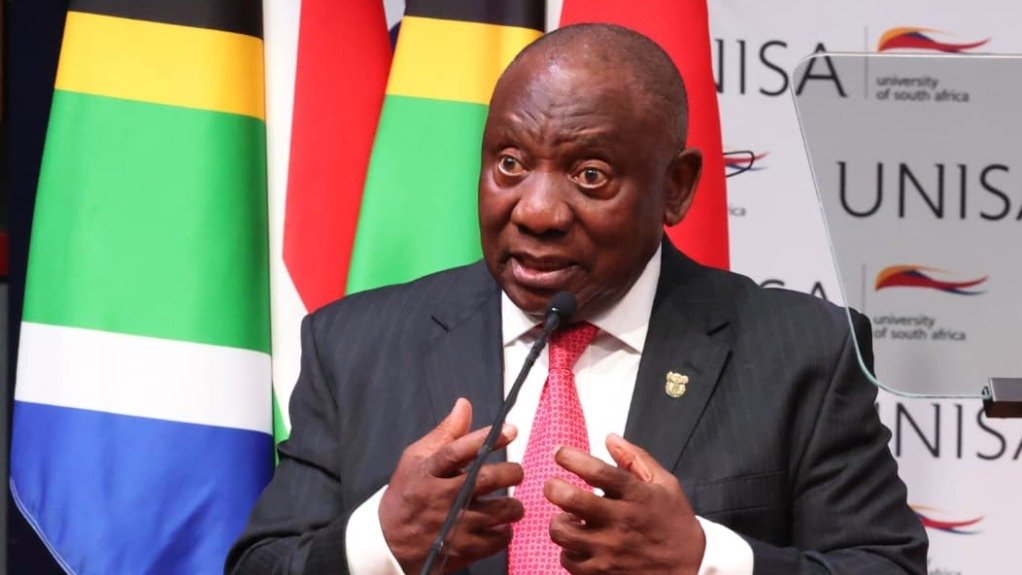President Cyril Ramaphosa on Monday stressed the importance of inclusion and participation during the first National Convention, and is urging citizens to air their differences as part of the process to find agreement on the actions that needed to be taken to improve South Africa.
In his weekly letter to the nation Ramaphosa acknowledged that some delegates expressed concerns that important voices were missing from the gathering.
“…there was a firm view that special efforts should be made to reach and include groups and people who were often left out or marginalised,” he said.
The Government of National Unity (GNU) held its first sitting of the National Convention in Pretoria on Friday, which Ramaphosa said reflected South Africa’s diversity and enthusiasm for the debate.
He said disagreeing was part of engaging in a meaningful and robust dialogue.
“We should not be afraid to disagree. It is through the expression of different views that we will be able to give full legitimacy and credence to the Dialogue,” he stated.
He said the Dialogue should break down barriers and challenge notions of ‘us’ and ‘them’.
“At the same time, we should not seek a form of unity that is based only on sentiment, but a unity that is forged through constructive and honest discussion on the difficult questions our country faces – and an agreed programme of action,” he said.
STEERING COMMITTEE
A Steering Committee, consisting of nominees from all sectors of society, will now take the process forward.
“Each of the sectors held discussions at the [National] Convention on how they would select their respective nominee for the Steering Committee by the end of August 2025. They agreed that these processes need to be inclusive and that the Steering Committee needs to be representative,” he said.
The Steering Committee would be supported and guided by the Eminent Persons Group, prominent South Africans tasked with championing the Dialogue and providing advice.
The Eminent Persons Group will also advise the President on the process.
Following ActionSA’s decision not to participate in the National Convention, and instead deploy observers, the party described last week’s event as “a stage-managed talk shop” that was “heavy on rhetoric and empty on solutions”.
Last week, ActionSA said it would not participate in the Convention owing to “serious and unresolved” questions, particularly around the budget of the National Dialogue.
“The lack of proper organisation was glaring from the outset. It soon became clear that Ramaphosa’s Convention was nothing more than a venting session without answers, met with youth rejection and no plan to confront corruption,” explained ActionSA Parliamentary Chief Whip Lerato Ngobeni.
She said Ramaphosa’s “weak and uninspired” remarks set the tone for what the party said was a complaints session masquerading as a national renewal project.
“Citizens once again listed the failures of the State, but this time, with no pathway to solutions,” she said.
She said Ramaphosa failed to inspire or outline a roadmap, noting that this was a complaints session, as citizens expressed frustrations about collapsing services, poverty, and joblessness.
“…yet there was no mechanism to convert complaints into binding commitments or action. Young South Africans rejected the process outright, questioning why they should waste time on leaders who have failed to deliver jobs, safety, or a better future,” she said.
She noted no dedicated stream on corruption, as well as the withdrawal of improtant legacy foundations, which she said underscored the lack of credibility in the process.
Earlier this month, seven legacy foundations withdrew from the National Dialogue Preparatory Task Team, calling for a postponement of the National Dialogue to allow for adequate preparation, coherence and participatory integrity, citing violations of the Dialogue’s core principles.
Last week, the Solidarity Movement and its affiliates also announced their withdrawal, attributing the decision to its belief that the National Dialogue had been “hijacked” by the African National Congress.
GOVT'S INTERVENTION
Meanwhile, GOOD Party national youth chairperson Kaden Arguile said the dialogue’s potential was “badly undermined" by poor planning, inefficiency and a lack of structure, calling on government to improve the process.
He claimed that invitations went missing, communication collapsed, the schedule shifted constantly, and critical discussions were cut short, and as a result, many under-represented communities were left unheard, he said.
Arguile pointed out that it had the potential to generate citizen-led solutions to South Africa’s crises of poverty, crime, corruption and inequality.
“Done right, the National Dialogue can strengthen democracy, amplify grassroots voices, and help unite South Africans around solutions,” he said.
Arguile said that while South Africa desperately needed brutal honesty and citizen-led solutions, without structure, discipline and accountability, the National Dialogue risked becoming a talk shop that deepened distrust.
“…more dialogues, if well-structured and inclusive, can lead to deeper understanding and greater unity. This process deserves our collective commitment - because only together can we build the South Africa our children deserve."
EMAIL THIS ARTICLE SAVE THIS ARTICLE ARTICLE ENQUIRY FEEDBACK
To subscribe email subscriptions@creamermedia.co.za or click here
To advertise email advertising@creamermedia.co.za or click here











